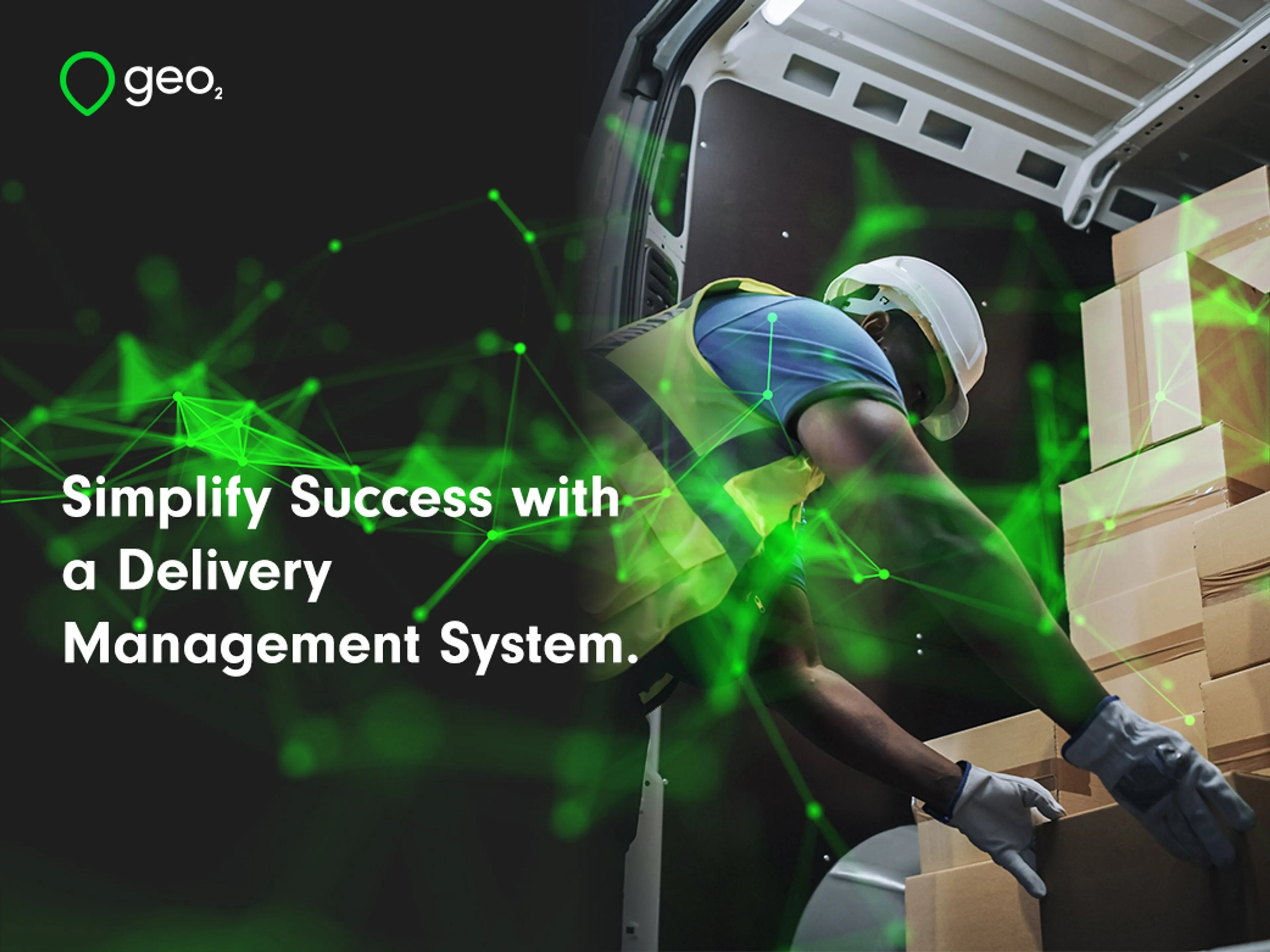Introduction.
The e-commerce sector continues to surge, with a projected increase in global retail e-commerce sales to reach nearly $7.4 trillion by 2025. Implementing a robust delivery management software becomes essential. Businesses are using advanced delivery systems to improve operations, satisfy customers, and stay competitive in the digital marketplace.
Navigating the complex logistics landscape requires precision, efficiency, and foresight. To achieve these qualities, a powerful delivery management software (DMS) can be your ultimate solution.
This guide explores DMS and offers advice to various professionals on improving operations and streamlining processes. Whether you are looking to enhance route planning, improve last-mile delivery, or boost overall efficiency, this guide offers the knowledge and expertise you need to stay ahead in the ever-evolving logistics industry.
Harnessing the Power of Delivery Management Software.
In today's tough market, businesses must deliver goods on time and in perfect condition to survive and succeed. Customer expectations are very high. Delivery management software is important for meeting demands. It helps with order dispatch, tracking shipments, optimizing deliveries, and providing great customer service.
This software helps businesses be better, stay ahead, and meet customer expectations in every delivery step. The software helps businesses track and plan routes, so they can provide better service than their competitors.

Overview of Delivery Management: Synchronizing Every Mile.
Delivery management is a highly complex and intricate dance of moving parts, where each component plays a vital role in the symphony of the supply chain. A robust and efficient Delivery Management System (DMS) acts as the conductor, seamlessly connecting all these parts together.
Delivery software manages important tasks like planning routes, communicating with customers, and providing real-time updates. It ensures that all parts of the system work together smoothly for optimal performance and great delivery experiences. With its meticulous attention to detail and comprehensive coordination, the DMS empowers businesses to achieve unparalleled efficiency and customer satisfaction in their delivery operations.
Evidence of Delivery Management Software's impact on business efficiency is unmistakable. A study published by Mckinsey & Company indicates that the utilization of advanced DMS can result in a reduction of delivery times by up to 30%.
Increased efficiency saves money for logistics companies. It also keeps customers happy and loyal. This is crucial in a business world where the customer's experience is paramount.
Delivery management software utilizes automation and analytics to assist businesses in anticipating and managing disruptions. This, in turn, enhances their performance in a dynamic market.
Benefits for Business Owners.
Owners at the helm need a comprehensive bird’s-eye view of their operations, and DMS Delivery Management System) provides just that. It empowers business owners to enhance their operations by providing insights into customer preferences, delivery patterns, and overall performance. This data-driven approach allows for informed decision-making and strategic planning, ultimately leading to increased profitability and scalability.
Benefits for Logistics Managers.
A logistic manager's goal is to deliver products to customers in good condition, on time, and at the best price. Therefore, efficient route planning and real-time tracking is essential. By integrating a DMS, they can gain unprecedented control over logistics, ensuring optimal asset utilization and customer service. Comprehensive inventory management further refines the balance between supply and demand, reducing waste and enhancing turnover.
Benefits for Supply Chain Managers.
Supply chain managers need a complete view of the supply chain, which DMS provides. Leveraging accurate demand forecasting and improving collaboration and communication among stakeholders, DMS enables supply chains to become resilient, responsive, and ready for challenges ahead.
Benefits for Transport Managers.
For those at the wheel of transportation, efficiency spells success. DMS systematically manages fleet optimization, driver performance monitoring, and ensures compliance and safety. The result? A fleet that's not only high-performing but also aligned with regulatory standards and social expectations.

What is the Main Functionality Within Delivery Management Software?
Delivery management software is not the same for every business. It varies for each business as they have different needs. It is crucial to understand the various features of DMS in order to find the most suitable one for your operations. Some common functionalities include:
- Route planning and optimization: This feature allows businesses to plan the most efficient routes for their deliveries, taking into account factors such as traffic, weather, and delivery priority.
- Real-time tracking: With the use of GPS technology and real-time data updates, businesses can track their deliveries in real-time, providing customers with accurate ETAs and improving overall transparency.
- Proof of delivery: This feature enables drivers to capture proof of delivery through digital signatures, photos, or barcodes, reducing the chances of disputes and improving customer trust.
- Analytics and reporting: DMS provides businesses with valuable data and insights into their delivery operations, allowing them to identify areas for improvement and make data-driven decisions.
- Customer communication: With automated notifications and updates via email and SMS, DMS enables businesses to keep customers informed about their deliveries and provide exceptional customer service.
- Invoice and payment management: This functionality allows businesses to manage invoices, payments, and billing for their deliveries, ensuring timely and accurate transactions.
By understanding different functions, businesses can choose the right DMS that meets their needs and maximizes success potential. A good delivery management system helps businesses improve their operations, meet customer expectations, and stay ahead in the supply chain industry.

Choosing the Right Delivery Management Software for Your Business.
With the range of DMS options available in the market, choosing the right one for your business can be overwhelming. Here are some key considerations to keep in mind when selecting a delivery management software:
- Scalability: Ensure that the chosen DMS can accommodate your current and future needs as your business grows.
- Integration capabilities: Look for a DMS that seamlessly integrates with your existing systems and software to avoid disruptions or data duplication.
- User-friendliness: The chosen DMS should be easy to use for all stakeholders, from drivers to customers, to ensure efficient adoption and utilization.
- Customization: Look for a DMS that can be tailored to your business's unique needs and processes.
- Support and training: Consider the level of support and training provided by the DMS provider to ensure a smooth implementation process and ongoing assistance.
- Cost-effectiveness: Evaluate the pricing structure of the DMS and consider its ROI potential for your business.
- Reliable and Knowledgable Supplier: Select a DMS provider that can be trusted to support your business's growth and success.
By considering these factors, businesses can choose a DMS that meets their current needs and prepares them for future success. With the right delivery management software, businesses can improve their supply chain operations and stay ahead in a changing industry.

Conclusion: Pursuing Logistics Transformation.
We stand at the precipice of a new era in logistics and supply chain management. A period where delivery management software is no longer a luxury but a fundamental necessity. This guide helps businesses adapt, excel, and create a future where efficiency and sustainability work together.
As we forge ahead, let us embrace the innovation DMS represents. It's not just software; it's a commitment to continuous improvement—a digital testament to our potential to outperform today's benchmarks and chart a course for a smarter, more connected tomorrow.
FREQUENTLY ASKED QUESTIONS
Delivery management software is designed to seamlessly integrate with existing systems, such as ERP and WMS, for a comprehensive view of operations. This integration allows for streamlined data flow between systems, eliminating manual entry errors and promoting real-time synchronization across all touchpoints.
Related posts

How Will AI Impact the Future of Supply Chain Management
The idea of artificial intelligence (AI) has been around for a long time. Once considered an unattainable buzzword, it now represents a remarkable reality and underpins some of the most exciting technological advancements. Machines can now pass the Turing Test and large language models (LLMs) are revolutionising text-based processes. AI has helped a paralysed man to walk again, is speeding up breast cancer diagnosis and can identify patterns that help with fraud detection in financial services.

Simplify Success with a Delivery Management System.
In today's environment, ensuring timely and efficient delivery is crucial for businesses. But how can small businesses, entrepreneurs, and logistics managers keep up with growing customer expectations? Enter the delivery management system, a game-changer for modern commerce.

Why Courier & Dispatch Software is a Must for Your Business
Efficient delivery is at the heart of every successful e-commerce and logistics business. Today, courier and dispatch software ensures timely deliveries, improves customer satisfaction, and helps businesses grow. But what exactly do these tools offer, and how can they benefit your operations? This blog will explore the key features, advantages, and how choosing the right software can transform your courier services.
